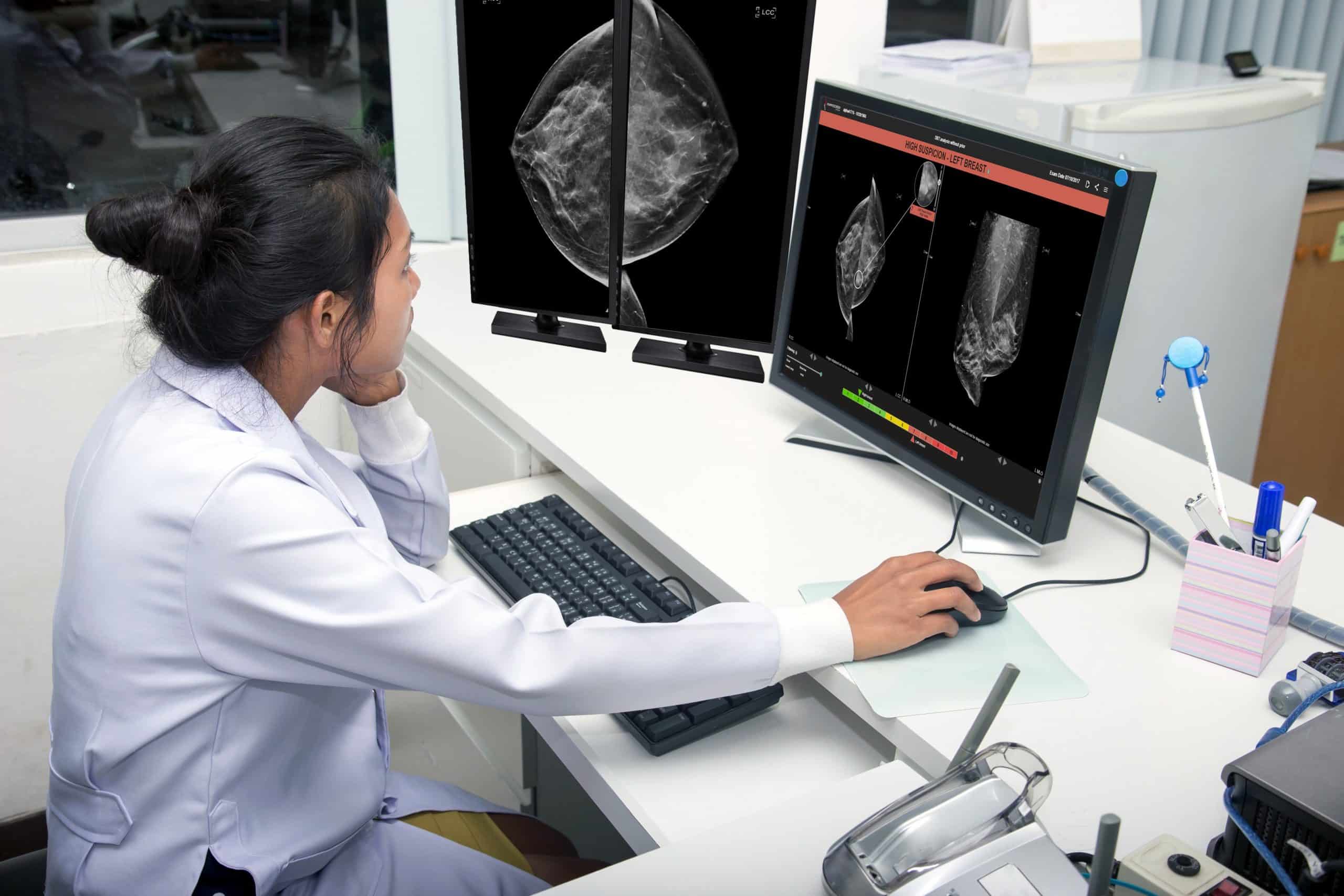Therapixel and Novadiscovery both develop high-tech solutions for health applications, and have also made the US market their priority. The Prix Galien is helping them in their ambition, giving them considerable visibility and credibility on the US market.
Created in 2013, Therapixel has been committed to breast cancer detection since 2017, after it won the Digital Mammography Dream Challenge against more than 1,200 research teams. Therapixel has continued to work on the algorithm it produced ever since. Its artificial intelligence solution, MammoScreen, increased breast cancer detection by radiologists by 20%, according to clinical studies the company conducted in 2019 and 2021. It is now available in two versions, 2D and 3D, and has obtained the CE mark and marketing authorization from the FDA.
The US market is Therapixel‘s priority. “Screening programs detect much less cancer in the United States than in the rest of the world because a single radiologist reviews the mammograms in the place of two elsewhere,’ explains Matthieu Leclerc-Calvet, Therapixel CEO. Therefore, 25% of breast cancer alludes US radiologists. This is one issue that MammoScreen can alleviate.
Upon reading medical images, MammoScreen gives a score, which evaluates the probability of cancer, with a higher or lower degree of certainty based on a color scale ranging from green (very certain and benign) to yellow (less certain) to red (very certain and malignant).
In 2022, MammoScreen was improved significantly. The software now takes more information into account. It can now integrate the patient’s previous examination and compare it to the current examination to detect new, potentially cancerous lesions. Therapixel is the only company in the world to offer this service. By the end of the year, a combined 2D and 3D version will be marketed.
“MammoScreen provides a safety net for radiologists, enabling them to detect breast cancer earlier and spend more time on more complex cases. We are accelerating and simplifying how medical imaging examinations are read. And this provides reassurance to patients, who get the results of tests much quicker,” said Matthieu Leclerc-Chalvet, Therapixel CEO.
On average, breast cancer is detected in 7 out of every 1,000 women examined. While in France patients get their results on the same day, in the United States they sometimes have to wait up to ten days. With MammoScreen, they could get the reassurance they need much quicker.
The solution makes it possible to “catch the cancer earlier, resulting in better chances of a full recovery,” added Matthieu Leclerc-Chalvet. It does not require any specific equipment and is simply inserted into the health professional’s workflow, providing supplementary information to them when they review the imaging.
In May 2022, the company raised €15 million to continue its growth and accelerate marketing of MammoScreen in the United States.
Novadiscovery is consolidating its presence in the United States
A year after it moved into Kendall Square, Boston, Novadiscovery transformed its business model from a consultancy service towards marketing a product, Jinkō. Its portfolio of customers has also changed, going from early adopters and small biotech companies to big pharma customers. The majority of its revenue now comes from subscriptions.
In 2021, Novadiscovery took the decision to move half of its executive board across the Atlantic and its teams continue to grow. “Expansion in the United States remains our priority,” confides François-Henri Boissel, co-founder and CEO. The new CFO recruited at the end of 2021, Ehud Gelblum, used to be at Flatiron Health, having contributed to the record $200 million financing of the specialist oncology medical technology company and the sale to the Swiss pharmaceutical company Roche for $2 billion.
“Jinkō is built specifically to develop disease models and simulate clinical trials. One aspect of our platform is it is specifically designed for human biology modeling,” said François-Henri Boissel, co-founder and CEO.
The platform provides disease models for pharmaceutical companies. Once the model has been approved, clinical trial simulations are carried out with virtual patients. With Jinkō, more tests can be done in less time and at lower cost. “Our models are mechanistic models based on knowledge from human minds,” explains François-Henri Boissel. The solution thus ultimately pushes forward the process of marketing innovative therapies.
Novadiscovery’s product is also very collaborative. It facilitates exchange between different team members and disciplines. “We democratize the in silico clinical trial for colleagues who do not have training in mathematics, for example,” notes the CEO.
The company, established in Lyon in 2010 is pleased to be attracting more and more US clients. It has also established several major collaborations in the United States with academic research units in the Boston university ecosystem.



